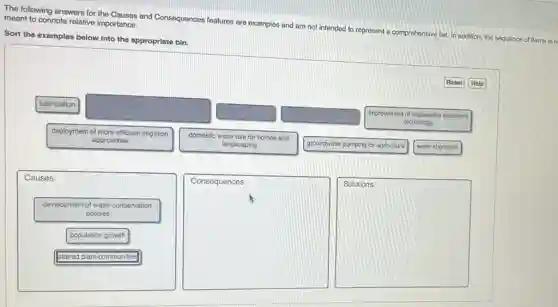The Untapped Potential Of Middle Management: How To Maximize Their Value

Table of Contents
Identifying and Cultivating Key Skills in Middle Managers
Effective middle management requires a unique blend of skills. Investing in developing these skills is crucial for unlocking their full potential.
Communication and Collaboration
Clear, concise communication is paramount for middle managers. They must effectively communicate information up to senior leadership, down to their teams, and across different departments. This involves:
- Clear and Concise Communication: Utilizing various methods like regular team meetings, email updates, and one-on-one check-ins to ensure everyone is informed and aligned.
- Fostering Collaboration: Implementing strategies to promote teamwork, such as cross-functional projects, collaborative workspaces, and team-building activities.
- Utilizing Communication Tools: Leveraging project management software (e.g., Asana, Trello), instant messaging platforms (e.g., Slack), and video conferencing tools (e.g., Zoom) to streamline communication.
- Active Listening and Feedback: Developing strong active listening skills to understand team needs and providing regular, constructive feedback to enhance performance.
Strategic Thinking and Problem-Solving
Middle managers need to be more than just executors; they need to be strategic thinkers and problem-solvers. This involves:
- Data Analysis and Trend Identification: Equipping them with the skills to analyze data, identify emerging trends, and anticipate potential challenges or opportunities.
- Problem-Solving Methodologies: Providing training in methodologies such as root cause analysis, Six Sigma, or design thinking to tackle complex issues efficiently.
- Empowered Decision-Making: Granting them the authority to make informed decisions within their area of responsibility, fostering a sense of ownership and accountability.
- Proactive Problem-Solving: Encouraging a culture of proactive problem identification and resolution, preventing small issues from escalating into larger problems.
Mentorship and Leadership Development
Middle managers play a crucial role in mentoring and developing their teams. This requires:
- Mentorship and Guidance: Providing support, guidance, and constructive feedback to junior employees.
- Creating a Supportive Environment: Fostering a positive, inclusive, and respectful work environment where employees feel valued and supported.
- Professional Development: Providing opportunities for professional development, such as training courses, conferences, and mentorship programs.
- Effective Leadership Styles: Training them in various leadership styles, such as servant leadership or transformational leadership, to adapt their approach based on team needs.
Empowering Middle Management for Optimal Performance
Empowering middle managers is key to maximizing their contribution to the organization's success.
Delegation and Trust
Effective delegation is crucial. Middle managers should be empowered to:
- Delegate Effectively: Assigning tasks and responsibilities based on individual strengths and capabilities.
- Build Trust and Autonomy: Building trust by giving them the freedom to make independent decisions within their defined scope.
- Provide Adequate Resources: Ensuring they have the necessary resources, tools, and support to succeed.
- Avoid Micromanagement: Resisting the urge to micromanage and instead fostering a culture of autonomy and accountability.
Performance Management and Recognition
Regular performance management and recognition are essential for motivation and growth:
- Clear Expectations: Setting clear performance expectations and providing regular feedback.
- Growth-Oriented Reviews: Using performance reviews as opportunities for growth and development, focusing on both strengths and areas for improvement.
- Rewarding Achievements: Recognizing and rewarding achievements and contributions, both big and small.
- Appreciative Culture: Cultivating a culture of appreciation and positive reinforcement to boost morale and motivation.
Alignment with Organizational Goals
Ensuring alignment between middle management and organizational goals is critical:
- Strategic Goal Understanding: Making sure middle managers understand the organization's overall strategic goals and how their work contributes to them.
- Regular Communication: Providing regular updates and clear communication on company performance and direction.
- Strategic Planning Involvement: Including middle managers in strategic planning processes to leverage their insights and expertise.
- KPIs and Progress Tracking: Using clear Key Performance Indicators (KPIs) to track progress towards organizational goals and ensure accountability.
Investing in Middle Management Development Programs
Investing in targeted development programs is crucial for long-term success.
Tailored Training and Development Initiatives
Identify specific skill gaps and develop targeted training programs using diverse methods:
- Targeted Training: Conducting needs assessments to identify skill gaps and developing tailored training programs to address them.
- Diverse Learning Methods: Utilizing various learning methods, such as workshops, online courses, mentoring, and simulations.
- Networking and Collaboration: Creating opportunities for middle managers to network and collaborate with peers.
- Program Evaluation: Measuring the effectiveness of training programs and making adjustments as needed.
Leadership Coaching and Mentorship Programs
Pairing middle managers with experienced mentors or coaches provides invaluable support:
- Mentorship Programs: Implementing formal mentorship programs pairing experienced leaders with middle managers.
- Leadership Coaching: Offering leadership coaching to help develop specific leadership skills and address individual challenges.
- Supportive Environment: Creating a supportive and safe environment for growth and feedback.
- Progress Tracking: Regularly tracking progress and providing ongoing support and guidance.
Succession Planning and Career Progression
Investing in succession planning ensures the organization's future leadership:
- Identifying High-Potential Individuals: Identifying high-potential middle managers for future leadership roles.
- Clear Career Paths: Developing clear career paths and opportunities for advancement within the organization.
- Long-Term Development: Investing in their long-term development and growth.
- Internal Mobility: Creating a culture of internal mobility and promotion.
Conclusion
Unlocking the untapped potential of middle management is key to organizational success. By focusing on developing crucial skills, empowering them with autonomy and trust, and investing in targeted development programs, businesses can transform this often-overlooked group into a powerful engine for growth and innovation. Don't underestimate the impact of strong middle management – invest in their development and watch your organization thrive. Maximize the value of your middle management today!

Featured Posts
-
 Polands Presidential Vote Implications For The Eu
May 19, 2025
Polands Presidential Vote Implications For The Eu
May 19, 2025 -
 Public Transports Bare Beating Issue Causes Consequences And Solutions
May 19, 2025
Public Transports Bare Beating Issue Causes Consequences And Solutions
May 19, 2025 -
 Orlandos Foodie Mecca Public Funding And Culinary Talent
May 19, 2025
Orlandos Foodie Mecca Public Funding And Culinary Talent
May 19, 2025 -
 Cne Establece Plazo Para Inscripcion De Candidatos Independientes
May 19, 2025
Cne Establece Plazo Para Inscripcion De Candidatos Independientes
May 19, 2025 -
 Qdas Alqyamt Fy Dyr Sydt Allwyzt Tqryr Alwkalt Alwtnyt Llielam
May 19, 2025
Qdas Alqyamt Fy Dyr Sydt Allwyzt Tqryr Alwkalt Alwtnyt Llielam
May 19, 2025
